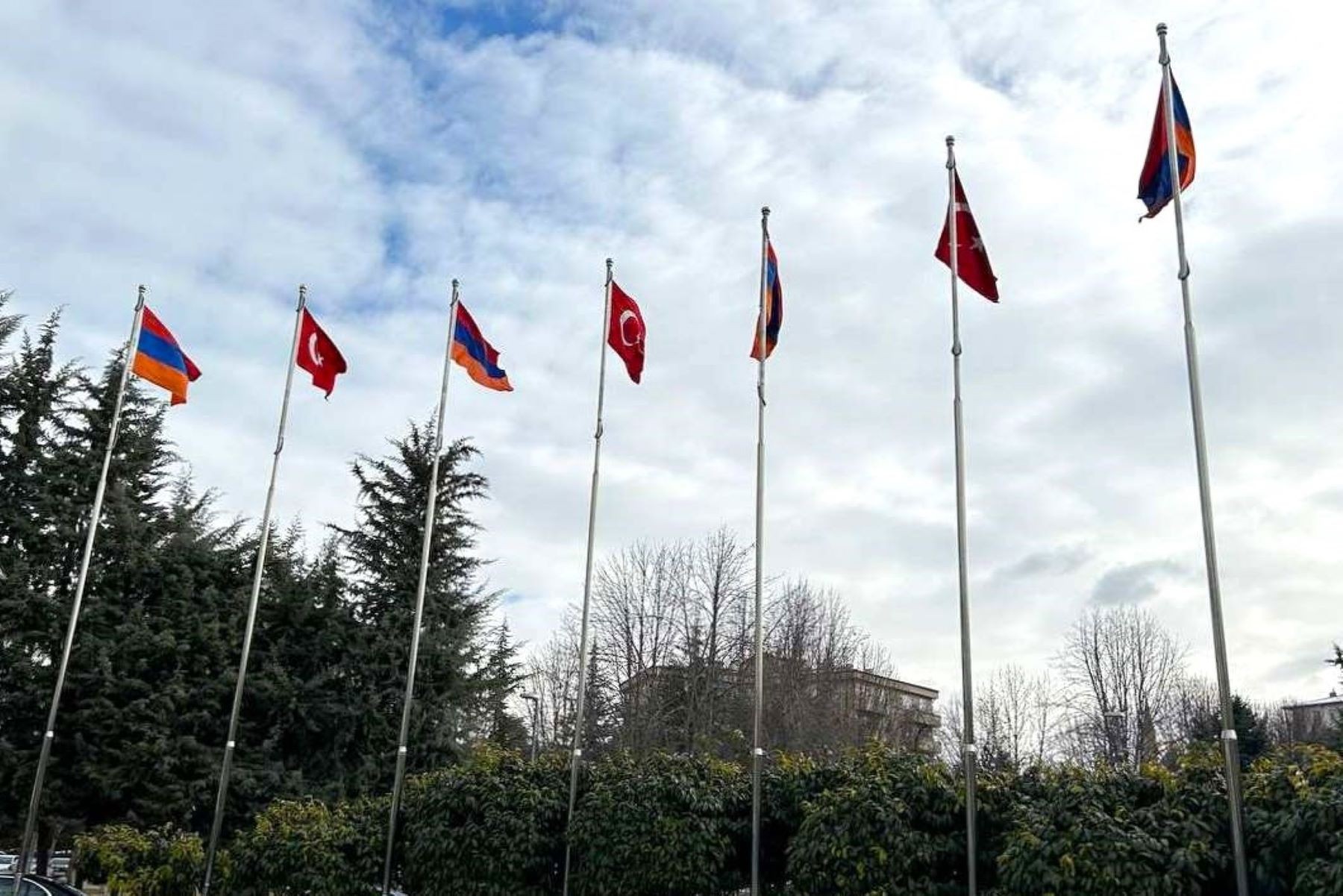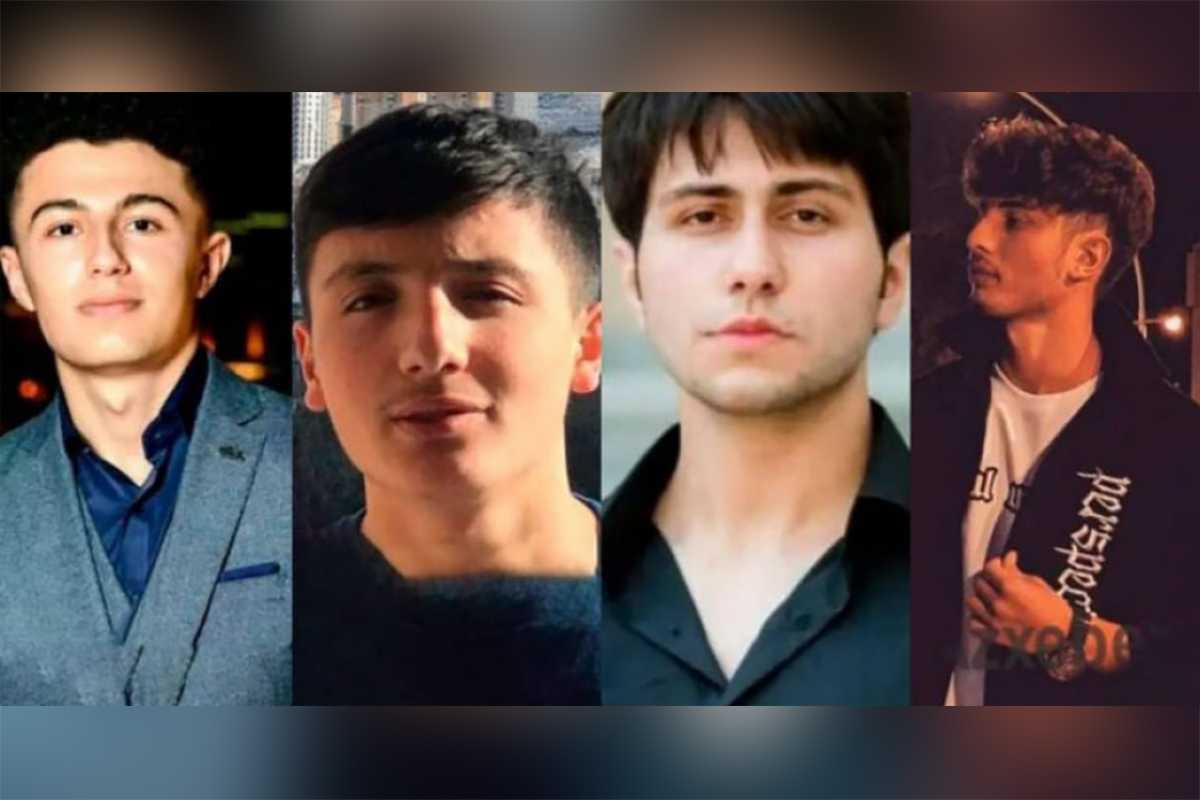
Armenian Foreign Minister Ararat Mirzoyan visited Ankara on Wednesday to meet his Turkish counterpart, Mevlüt Çavuşoğlu. The visit came just over a week after Armenia sent humanitarian aid to Turkey via land borders that had been closed for thirty years.
Mirzoyan arrived in Ankara on Wednesday morning, along with deputy minister Vahan Kostanyan, and Armenia’s special envoy for the normalisation of relations with Turkey, Ruben Rubinyan.
‘I consider it symbolic that on Saturday, the Armenian-Turkish border, which has been closed for thirty years, was opened for Armenian lorries loaded with humanitarian aid heading to Adiyaman’, Mirzoyan stated during a joint press briefing following the meeting.
Mirzoyan also announced that the two countries had agreed to jointly repair the Ani bridge and ‘take care of the relevant infrastructure ahead of the full opening of the border’.
Following the meeting, Armenia’s Foreign Minister visited the city of Adıyaman, which was devastated by last Monday’s earthquake, and met with a team of Armenian rescuers working in the area.
Last week’s announcement that Armenia would provide Turkey with aid following the disaster was met with surprise from some.
Diplomatic relations between the two countries have long been hostile, as Turkey denies that a genocide of Armenians took place under the Ottoman Empire. Relations were formally halted in 1993 during the First Nagorno-Karabakh War, and have continued to be tense in recent years, particularly in light of Turkey’s support for Azerbaijan during the Second Nagorno-Karabakh War in 2020.
The two governments previously held negotiations aimed at normalising relations in 2008. Negotiations broke down after Armenia refused to link the talks with the peace process with Azerbaijan, or to allow Turkey a role in their discussions with Baku.
Following Wednesday’s meeting, Çavuşoğlu thanked Armenia for its support in the wake of last week’s earthquake. He recalled that Turkey supported Armenia after the 1988 Spitak earthquake, and Armenia had sent aid to Turkey after the earthquake in İzmit in 1999.
Çavuşoğlu added that they had discussed the normalisation of relations between Turkey and Armenia, and believed that the countries’ humanitarian cooperation would ‘support’ the process. The minister noted that they had also discussed the normalisation of relations between Armenia and Azerbaijan.
‘The highest level of humanity’
Armenia sent a team of rescuers to earthquake-stricken areas of Turkey and Syria on 6 February, and has since sent a second round of humanitarian aid.
For the first time since 1993, the two countries’ land border has been opened for lorries carrying humanitarian aid.
Turkey’s special envoy for the normalisation of relations with Armenia, Serdar Kiliç, tweeted that he would ‘always remember’ Armenia’s provision of aid to Turkey.
‘We all […] put our ethnicities, nationalities and religions aside and decided to [display] the highest level of humanity and human to human solidarity’, he added, in response to his Armenian counterpart’s tweet about Armenian rescue work in Adıyaman.
Mirzoyan’s visit is the second in two years. In spring 2022, the Armenian Foreign Minister took part in the Antalya Diplomacy Forum, meeting there with Çavuşoğlu. Earlier this year, Mirzoyan stated that he had received an invitation for this year’s forum and would ‘most likely’ take part in it.
The special representative of the EU in the South Caucasus, Toivo Klaar, called Mirzoyan’s visit ‘historic’, expressing hopes that it was a ‘harbinger of developments’ in the countries’ bilateral relations.
The current phase of normalisation began after the Second Nagorno-Karabakh War, when Armenia and Turkey appointed special envoys to carry out negotiations. In early 2023, Turkey lifted a ban on cargo flights between the two countries and the countries agreed to open their land border for citizens of third countries.
Yerevan’s officially stated position is that normalisation with Turkey should be ‘unconditional’, implying that issues relating to Nagorno-Karabakh or recognition of the Armenian genocide would not be a part of the discussion.
However, Turkey has suggested that normalisation of relations was contingent on the normalisation of Yerevan’s relations with Baku, and has pushed for Armenia to sign a peace treaty offered by Azerbaijan.







